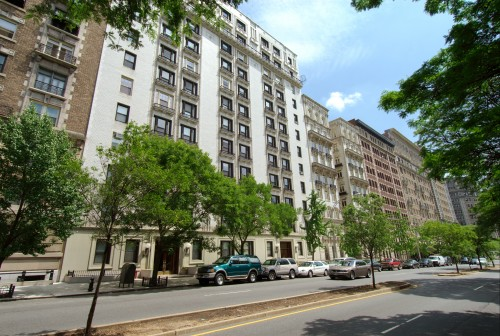Residential Operations’ Green Living Initiatives

The next time a Facilities superintendent installs a light bulb, fixes a leaky faucet, and weather strips the doors, he/she will be using energy efficient products and systems thanks in part to our participation in the Local 32B/J Thomas Shortman Training Fund's "1,000 Green Supers" program. Columbia's partnership in the development and citywide promotion of this program for "green supers" is among the many new sustainability initiatives that our Facilities Residential Operations team is implementing.
Initially Columbia, led by the Facilities Residential and Commercial Operations management team, supported the early development of Local 32B/J's "green" training program for New York City superintendents by providing a classroom space as well as a group of University program participants. This was part of the formal establishment of the "1,000 Green Supers" program, which is providing environmental stewardship training to at least 1,000 superintendents citywide. Nearly all of Columbia's superintendents have now successfully completed the program, furthering the program's goal-to help provide New York City with a professional building service workforce capable of reducing energy use, conserving water, saving money, improving our health, and cleaning our environment.
Specialized seminars that cover specific elements of each super's building are included in the program's curriculum. At the conclusion of the courses, all superintendents that take and pass a comprehensive written and field test are awarded green building certifications by the Building Performance Institute and the United States Green Buildings Council. The union will also provide coaches for one-on-one training to help supers implement what they have learned.
"Columbia is thrilled to be a pilot partner of this innovative program," said Columbia University Facilities Executive Vice President Joe Ienuso. "When we support green buildings, we reduce greenhouse gas emissions, clean our environment, help our neighborhoods prosper, and save money."
Loretta Zuk, superintendent at 547 Riverside Drive for the past 15 years, explained how the training will help her become more environmentally friendly. "The first day of class, we learned about building science and how to make buildings environmentally safe, inside and out, when it comes to things such as water, heat, and ventilation," said Zuk. "It's great to be able to take a class right here at Columbia, where I work, and in a classroom reserved for us to learn."
In addition to providing tenants with "green supers," Columbia is furthering sustainable initiatives by pilot testing the use of microturbines-mini electric generators that use natural gas to generate electricity onsite (within residential buildings) and decrease power consumption and demand from local utilities. Also the steam that the turbines produce is used to make hot water and to assist in producing heat, thus decreasing the University's dependence on boilers and reducing its oil consumption. Sophisticated computer systems control the microturbines and, at 15-minute intervals, record all data on the amount of energy produced by the microturbine and used by a building. This information is also used to fine-tune the microcomputer's operation as well as to provide year-to-year energy consumption comparisons.
"As far as I know, this is the fi rst such installation for any institution of higher learning in New York City," said Mark Kerman, Assistant Vice President, Residential Operations. The estimated annual reduction in greenhouse gas emissions from each mircoturbine will be equal to taking at least 45 cars off the road each year, Kerman says.